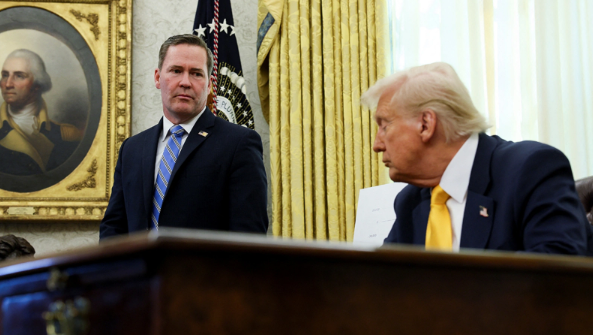Trump’s foreign policy with Rubio: From Signalgate to the diplomatic turnaround.
Donald Trump’s national security adviser, Mike Waltz, was embroiled in a major intelligence scandal in early May 2025 that quickly led to his dismissal. The scandal, which became known as “Signalgate,” began when Waltz mistakenly added a journalist to a secret chat group on the Signal app. In the group, senior US government security officials exchanged views on sensitive military plans, including details of military operations in Yemen. The indirect release of some of this information to the media angered Trump and, in the eyes of the White House, represented a serious failure to maintain the security of classified information.
However, a technical error in using an app was only part of the reason for Waltz’s dismissal. In parallel with this incident, reports emerged that Waltz, without obtaining official permission from Trump or coordinating with the State Department, met with Israeli Prime Minister Benjamin Netanyahu and discussed scenarios for a preemptive strike against Iranian military installations. This action, which was considered a violation of the security decision-making chain, was interpreted by the White House as “diplomatic arbitrariness” and was seen as a factor in the internal relations of the Trump administration; this at a time when negotiations between Iran and the United States are considered to be moving forward, with three rounds having passed so far and the two countries on the verge of a fourth round of negotiations.
Recently, the newspaper “Yediot Aharonot” confirmed the accuracy of the “Washington Post” report about the coordination of Israeli Prime Minister Benjamin Netanyahu with Waltz, the dismissed US national security adviser, on Iran.
Moreover, sources close to the White House have noted that Waltz has tended to take independent, sometimes contradictory positions in recent National Security Council meetings. In some cases, she has advocated aggressive policies in Yemen and Syria, while Trump has sought to reduce direct military intervention. These growing differences have contributed to the president’s waning trust in his national security adviser.

